Covid in Scotland: Self-isolation replaced by stay at home message
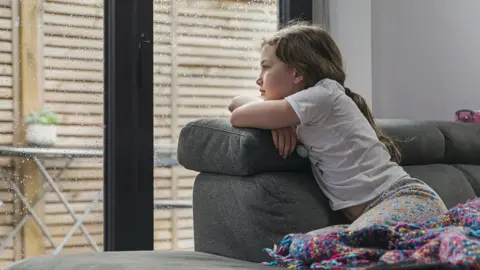 Getty Images
Getty ImagesPeople with Covid in Scotland no longer legally need to self-isolate and contact tracing has come to an end as case numbers continue to fall.
Covid-19 infections have dropped for the fifth successive week, with about one in 25 people having the virus, compared with one in 19 last week.
Following a change in Scottish government guidance, anyone feeling unwell with Covid symptoms is now advised to stay at home and avoid contact with others.
Why do we no longer need to self-isolate?
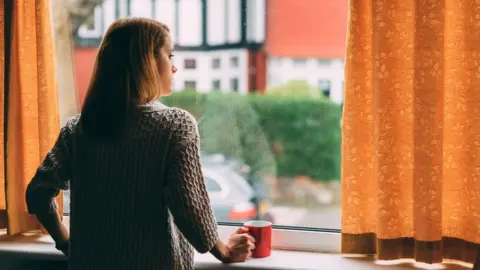 Getty Images
Getty ImagesHealth Secretary Humza Yousaf says Scotland is now in a "different phase of the pandemic" and is "focused on reducing severe harm of the virus".
Covid-19 is effectively now being treated in the same way as any other virus.
What is happening with testing?
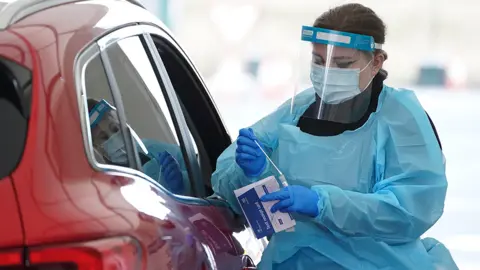 PA Media
PA MediaYou will no longer be advised to take a PCR test, mass testing has ended, testing sites are closing and test and trace has finished. Free lateral flow tests for the general population have already come to an end.
The Protect Scotland app will be closed down but users are advised to keep the app on their phones in case it is needed again at a future date.
What are the Covid symptoms?
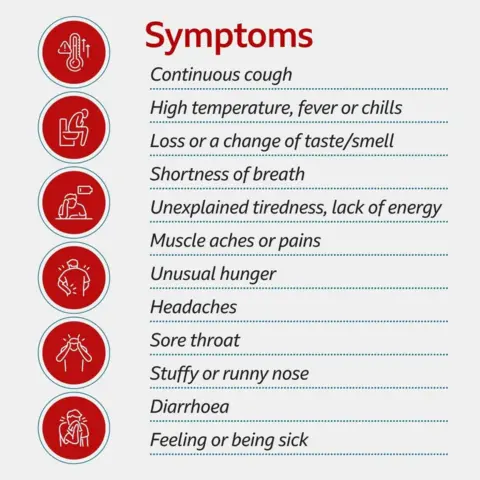
Scotland's list of official Covid-19 symptoms has now been expanded, bringing it closer in line with guidance in the rest of the UK.
The original signs of a Covid infection that were recognised in the UK were fever, new continuous cough and loss of sense of smell or taste.
Additions to the list in Scotland now include: shortness of breath, unexplained tiredness, lack of energy, muscle aches or pains, unusual hunger, headaches, sore throat, stuffy or runny nose, and diarrhoea, feeling sick or being sick.
What do I do if I have symptoms?
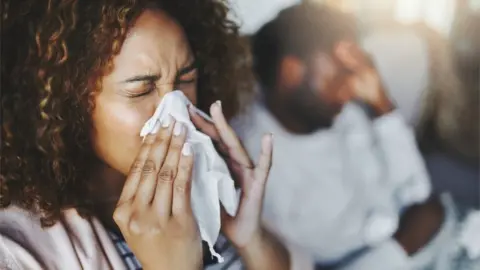 Getty Images
Getty ImagesAdults who have symptoms of Covid and other respiratory illnesses and have a high temperature, or do not feel well enough to go to work or carry out normal activities, will be advised to stay at home until their fever has gone or they feel well enough.
Children and young people aged 18 and under with mild symptoms such as a runny nose, sore throat, or slight cough who are otherwise well, do not need to stay at home and can continue to attend education settings.
The Scottish government says this reflects the fact that children and young people generally have a higher likelihood than adults of regular instances of respiratory symptoms from non-Covid illnesses.
How is the NHS affected?
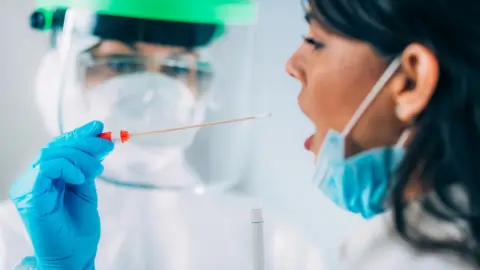 Getty Images
Getty ImagesNHS Scotland has now also been taken out of emergency footing as Covid cases continue to fall.
However, testing will remain available to certain groups including health and social care workers, care home and hospital visitors, patients groups eligible for treatment, hospital patients, unpaid carers and people in prison.
What is the expert opinion?
 University of Edinbugh
University of EdinbughPublic health expert Prof Linda Bauld says people can still become really unwell with Covid and those with a high temperature are strongly advised to stay at home.
If they still have lateral flow tests in the house and test positive, adults should isolate for five days and children for three days.
She warns that the pandemic is not over yet and says measures may need to be reassessed if a new Covid-19 variant "really challenged" the progress made.
Are vaccinations still happening?
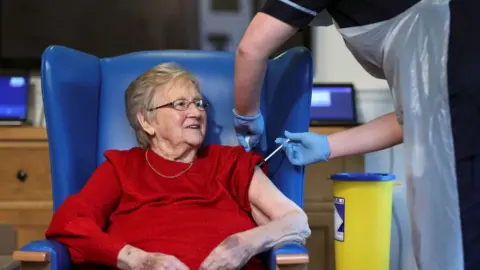 Getty Images
Getty ImagesThose eligible for the spring booster are adults aged 75 years and over (or who will turn 75 by 30 June 2022), residents in care homes for older adults and individuals aged 12 years and over who have a weakened immune systems.
For some immunosuppressed people this may be their fifth jab, as extra doses were given to those with certain health conditions.
All five to 11-year-olds in the UK are eligible for a low-dose Covid vaccine.
What is the situation with masks?
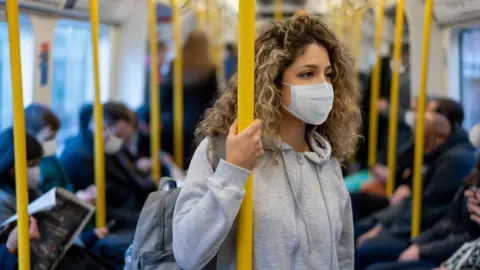 Getty Images
Getty ImagesPeople in Scotland are no longer legally required to wear face coverings in crowded indoor places such as shops and restaurants, or on public transport. However, the Scottish government and health experts are still strongly advising people to continue to wear masks voluntarily.

- BOOSTER: Who can get the fourth jab and how do you book it?
- SYMPTOMS: Is a runny nose a cold or Covid?
- ISOLATION: What is the Covid isolation advice now?
- MANAGING COVID: How to look after yourself at home
- COVID CASES: How many cases are there in my area?
- LONG COVID: What is it and what are the symptoms?
- TREATMENT: What progress is being made?

